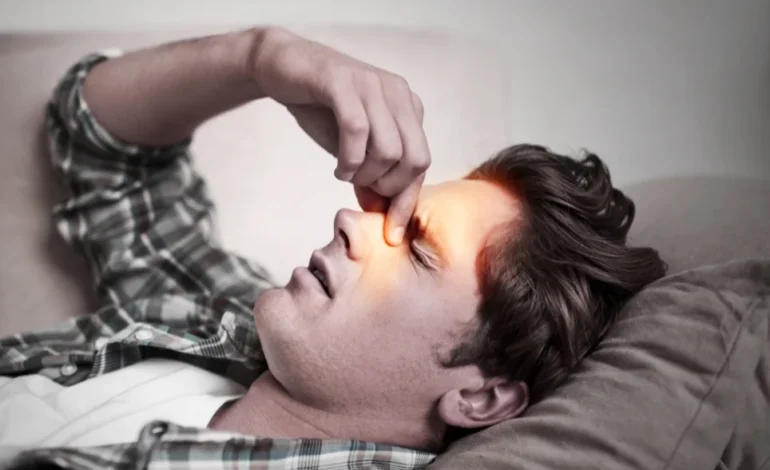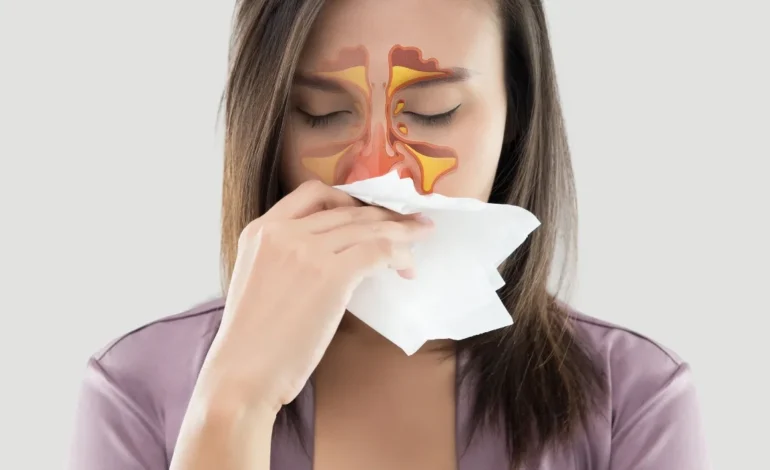
Unleashed Secrets: The Astonishing Reality of Nymphomania Uncovered!
What Is a Nymphomaniac?
A nymphomaniac is a term used to describe someone with an excessive and uncontrollable sexual desire or behavior. It is colloquially used to refer to a person, typically a woman, who has an insatiable appetite for sexual activity or who engages in sex frequently and indiscriminately. However, the term is not a clinical diagnosis, and it can carry negative connotations, often associated with promiscuity or hypersexuality. In a clinical context, hypersexuality might be diagnosed as a sexual disorder or a symptom of other underlying conditions. It’s crucial to note that the term “nymphomaniac” is subjective and can carry stigmatizing implications. If someone is experiencing distress due to their sexual behavior, seeking the guidance of a mental health professional is recommended.
Origin of “Nympho or nymphomaniac” Word
Nymphomania is derived from the Greek words nymphe, meaning “bride,” and mania, signifying “madness.” Initially, it was used to describe a woman believed to be possessed by the nymphs, the mythical Greek deities associated with nature and fertility.
Today, it may be called any of the following, though some research points to nuances that might distinguish them:
- Hypersexuality Disorder
- Compulsive Sexual Behavior
- Sex Addiction
Certain medical professionals view hypersexual behavior as a compulsive or impulse control problem, while others regard it from the perspective of addiction.
Symptoms of Compulsive Sexual Behavior
Compulsive Sexual Behavior (CSB) is a severe and complex condition that can have a significant impact on the individual’s life. It is important to note that CSB is not the same as having a high sex drive. Individuals with CSB experience a persistent and intense preoccupation with sexual fantasies, urges, and behaviors that often lead to personal distress and interference in various areas of life. While there is no standardized list of symptoms, several signs may indicate compulsive sexual behavior.
- Obsession with Sexual Thoughts: Individuals with compulsive sexual behavior often have persistent, intrusive, and intense sexual thoughts, fantasies, or desires that may dominate their thinking.
- Excessive Masturbation or Pornography Consumption: Engaging in frequent or excessive sexual activities, including masturbation, or exhibiting symptoms of porn addiction including prolonged consumption of pornography, may indicate compulsive sexual behavior.
- Risk-Taking: Engaging in high-risk sexual activities, such as unprotected sex with multiple partners or anonymous encounters, is common among individuals with hypersexual tendencies.
- Interference With Daily Life: When sexual thoughts and behaviors become the primary focus, interfering with work, relationships, and daily activities, it can signal compulsive sexual behavior.
- Continued Behavior Despite Consequences: Despite negative consequences like relationship issues, legal problems, or damage to one’s reputation, the behavior persists.
- Compulsive Behavior Patterns: Developing compulsive rituals around sexual activities or a loss of control over sexual behavior, even when the individual desires to cease such conduct, is an indicator.
- Feelings of Guilt or Shame: Individuals may experience significant emotional distress, guilt, or shame related to their sexual behaviors, yet they may find it challenging to control these impulses.
- Anxiety: High levels of anxiety related to sexual behavior, such as worrying about one’s urges consequences, or feeling unable to control them.
- Depression: Feeling of low mood, hopelessness, or despair, often triggered by the inability to control or manage compulsive sexual behavior.
Understanding these complex factors is essential for comprehensive diagnosis and effective treatment approaches.
Surprising Causes Behind Nymphomania
It is a complex condition with no single known cause. However, research suggests that a combination of the following factors may contribute to its development:
- Genetics: Some people may be more genetically predisposed to developing nymphomania than others due to variations in genes that regulate sexual desire, such as the dopamine receptor gene.
- Brain Chemistry: Imbalances in certain brain chemicals, such as dopamine and serotonin, may play a role in nymphomania. Dopamine is a neurotransmitter that plays a role in motivation and reward, while serotonin is a neurotransmitter that plays a role in mood and impulse control. Imbalances in these neurotransmitters can lead to increased sexual urges and difficulty controlling those urges.
- Life Experiences: Stressful life events, such as trauma like break-up, loss of close one or abuse, may trigger nymphomania in women who are already predisposed to it. This is likely because trauma can alter brain chemistry and lead to problems with impulse control.
- Mental Health Conditions: Nymphomania may be associated with other mental health conditions, such as bipolar disorder, anxiety, and depression. For example, people with bipolar disorder may experience periods of hypersexuality during manic episodes.
- Substance Abuse: Alcohol and drug abuse can increase sexual urges and lead to compulsive sexual behavior. It is likely because substances such as alcohol and cocaine can affect brain chemistry and impair impulse control.
- Medications: Some medications, such as antidepressants and antipsychotics, can cause side effects such as Compulsive Sexual Behavior. These medications can affect the levels of certain neurotransmitters in the brain.
- Neurological Conditions: Certain neurological conditions, such as temporal lobe epilepsy and Parkinson’s disease, can also cause hypersexuality. This is likely because these conditions can damage the parts of the brain that regulate sexual desire and impulse control. Additionally, some medications used to treat these conditions, such as dopamine agonists, can also increase sexual desire.
- Childhood Trauma: Experiencing childhood trauma, such as abusive parents, parental separation, or being sexually exploited by a close one, leading to seeking happiness in adulthood or using compulsive behavior as a coping mechanism to escape distressing childhood memories.
It is important to note that nymphomania is not a recognized diagnosis in the Diagnostic and Statistical Manual of Mental Disorders (DSM-5). Instead, it is now considered to be a symptom of compulsive sexual behavior disorder.
Stop Guessing! Know Exactly When It's Time to Call Your Healthcare Provider!
If you or someone you know experiences ongoing distress, disruptions in daily life due to Compulsive Sexual Behavior, or feelings of being out of control regarding sexual actions, it’s essential to seek professional help. While sexual behavior, desires, and interests vary widely among individuals, when these aspects interfere with life, relationships, or emotional well-being, it’s crucial to consult a healthcare provider.
The following scenarios indicate the necessity of seeking medical advice:
- Persistent Obsessive Thoughts: If obsessive thoughts regarding sex or an inability to control sexual impulses persist and lead to distress, it’s recommended to consult a healthcare professional.
- Relationship Problems: If it cause strain or conflict in relationships with partners, family, or friends, seeking guidance is advisable.
- Emotional Distress: Experiencing anxiety, depression, break-up, loss of someone, or other emotional disturbances due to compulsive sexual behaviours warrants professional evaluation and possible treatment.
- Legal or Social Issues: If sexual acts cause legal trouble or social problems, such as harassment or exploitation, seeking professional support is crucial.
- Escalating Behavior: If it becomes increasingly extreme over time and causes distress or impairs daily functioning, it’s essential to seek help.
Don’t hesitate to consult with a licensed mental health professional or counselor who can offer insights and support in understanding the causes and appropriate management strategies for hypersexual behavior.”
Seeking help is the first step towards healing and a brighter future.
Decoding Nymphomania: Identifying Signs in Women
Understanding the signs of nymphomania is a topic that raises curiosity for many individuals. Learning to tell if a woman is a nympho can shed light on the complex characters and behavioral patterns that might suggest an inclination toward this condition. Recognizing these indicators is essential for identifying the characteristics associated with nymphomania.
- Reluctance to Refuse: A nymphomaniac may find it challenging to say “no” to sexual encounters, often accepting advances even when they’re uncomfortable or against their better judgment.
- Risk-Taking in Bed: The compulsion for unprotected sex can be observed, showcasing an impulsive attitude that might disregard the potential risk of HIV or sexually transmitted disease.
- Escape from Commitment: Aversion to committed relationships or fleeing from long-term commitments might be evident, preferring fleeting encounters over emotional connections.
- Juggling Multiple Partners: Frequently engaging in sexual encounters with multiple partners is a typical trait of nymphomania. These individuals may find it challenging to maintain long-term, exclusive relationships.
- Public Playfulness: Exhibiting sexually suggestive behavior or flirting in public, showing a lack of inhibitions when it comes to sexual expression.
- Desire for Dominance: A preference for dominating or taking charge in sexual encounters, highlighting an insatiable desire for control and power.
- Obsessive Sexual Thoughts: Constantly obsessing over sexual thoughts, discussions, or fantasies, which can become the central focus of her life.
- Rapid Arousal: A heightened susceptibility to sexual arousal, often triggered by minor stimuli, can lead to frequent sexual encounters.
- Manipulative Behavior: The use of manipulative tactics or strategies to obtain sexual satisfaction or to control partners in sexual interactions.
- Magnetism and Mistrust: Being admired by some and envied by others often leads to trust issues and difficulties in forming deeper connections.
- Adventurousness and Playthings: An openness to experimentation, including the use of sex toys or a keenness for novel sexual experiences.
- Habitual Self-Touching: Frequent touching or self-stimulation, which may be evident as an unconscious or habitual behavior.
- Fondness for Erotic Reads: A keen interest in erotic literature, showcasing an elevated fascination with sexual content and materials.
- Pleasure as Prime: Prioritizing sexual gratification over other aspects of life or relationships, often at the expense of responsibilities.
- Neglect of Obligations: Neglecting important commitments or responsibilities in favor of engaging in sexual activities.
- Emotional Distress Coping: Using sex as a coping mechanism for emotional distress or psychological issues, seeking relief or escape through sexual encounters.
- Veiled Past: Attempts to hide or obscure past experiences or relationships, exhibiting a desire to distance oneself from previous sexual activities.
- Concentration Challenges: Difficulty concentrating on tasks or other activities due to preoccupation with sexual thoughts or encounters.
- Withdrawal Symptoms Post-Abstinence: Experiencing symptoms akin to withdrawal or distress when unable to engage in sexual activities or after a period of abstinence.
Identifying nymphomania is multifaceted and may involve several of these characteristics, which, when considered collectively, might signal the presence of this condition.
Finally! A Proven Treatment for Nymphomania
Treatment for nymphomania is typically tailored to the individual’s specific needs and circumstances. However, some standard treatment approaches include:
- Cognitive-behavioral therapy (CBT): CBT is a type of psychotherapy that can help individuals identify and modify their thoughts and behaviors. In the context of nymphomania, CBT can help individuals identify triggers for their excessive sexual desire and develop healthier coping mechanisms.
- Medication: In some cases, healthcare providers may prescribe certain medications to help manage symptoms associated with nymphomania. For example, antidepressants may be prescribed to help manage mood swings or anxiety.
- Support groups: Support groups can provide a safe and supportive environment for individuals to share their experiences and learn from others struggling with nymphomania.
- Lifestyle adjustments: Making healthy lifestyle choices, such as eating a balanced diet, getting regular exercise, and getting enough sleep, can also help to manage symptoms of nymphomania.
Nymphomania is a complex condition, and there is no one-size-fits-all treatment approach. This approach has proven to be very helpful in assisting individuals to effectively manage their symptoms and enhance their overall quality of life. It is crucial to seek professional help if you are struggling with nymphomania, as early diagnosis and treatment can lead to better outcomes.
Grab These Extra Tips Now!
It is important to remember that you are not alone if you are struggling with nymphomania. Many resources are available to help you, and there is no shame in seeking help. Here are some additional tips:
- Be honest with yourself about your condition. The first step to recovery is admitting that you have a problem.
- It would be helpful to have a conversation with a trusted friend or family member about the difficulties you are currently facing. Choose someone you can confide in who will listen to you without judgment.
- Be patient with yourself. Recovery takes time. Keep going even if you don’t see results immediately.
Coping with Lifestyle Changes
In addition to the coping mechanisms discussed above, several lifestyle changes can also be helpful for individuals with nymphomania. These changes include:
- Self-Care Routine : A self-care routine is essential for managing nymphomania and other mental health conditions. This routine should include activities that help you to relax, de-stress, and feel good about yourself. Some examples of self-care activities include exercise, yoga, meditation, leisure time, and creative pursuits.
- Uninterrupted Regular sleep: Sleep is essential for both physical and mental health. When you are well-rested, you are better able to manage your emotions and impulses. Aim for 7-8 hours of sleep per night.
- Eating Well-Balanced Meals: Eating a healthy diet can help to improve your mood and energy levels. Avoid processed foods, sugary drinks, and excessive caffeine and alcohol, as these substances can worsen symptoms of nymphomania.
- Join Support Network: Having a solid support network can be very helpful for individuals with nymphomania. This network can include friends, family members, therapists, and support groups. Talking to others about your experiences and getting support from loved ones can help you feel less alone and more in control.
- Openness And Honesty : It is important to be honest with yourself and others about your thoughts, emotions, and behaviors. It is not easy, but it is essential for recovery. Talking to a therapist, trusted friend, or family member can help you to process your thoughts and feelings and develop healthy coping mechanisms.
- Seeking Professional Help: If you are struggling to cope with nymphomania on your own, it is crucial to seek professional help. A therapist can help you to develop a treatment plan that is right for you. This plan may include individual therapy, medication, or support groups.
- Being Consistent With Treatment: Recovery from nymphomania takes time and effort. It is essential to be compatible with your treatment plan, even when feeling better. Stay encouraged if you have setbacks along the way. Just keep working at it, and you will eventually reach your goals.
- Awareness Of Triggers: Once you have identified your triggers, you can develop strategies for avoiding them or healthily coping with them. For example, if you know that certain types of pornography trigger your sexual desire, you can avoid watching them. Or, if you know that certain people or places trigger you, you can prevent them or develop strategies for coping with them when you have to be around them.
Making these lifestyle changes can be challenging, but it is essential to remember that they can make a big difference in your ability to manage nymphomania and live a fulfilling life.
Summary
Nymphomania, or hypersexuality disorder, is a condition that can affect women, regardless of gender. It is characterized by excessive sexual thoughts and behaviors that interfere with daily life. Effective treatments include therapy, personal coping strategies, and medication. If you are a woman struggling with hypersexuality disorder, please reach out to a mental health professional for help.






